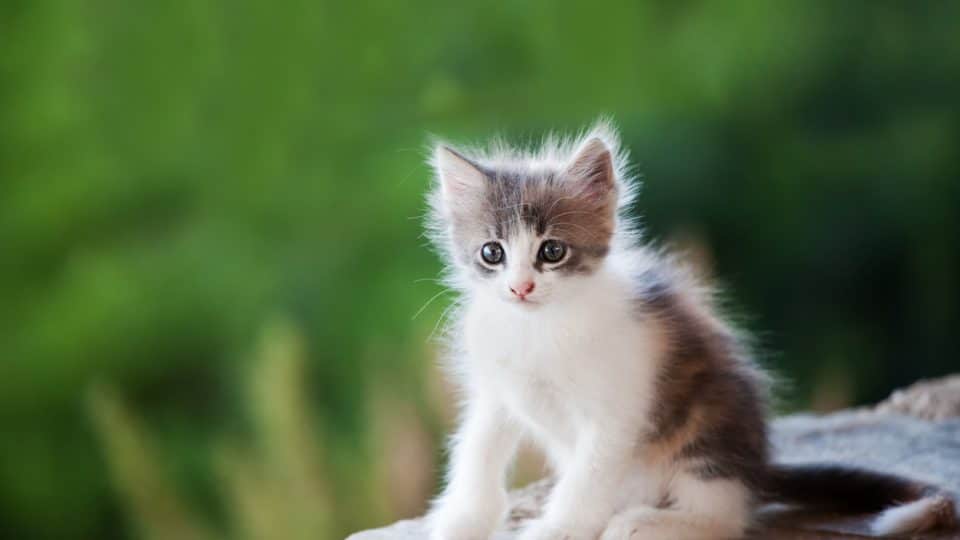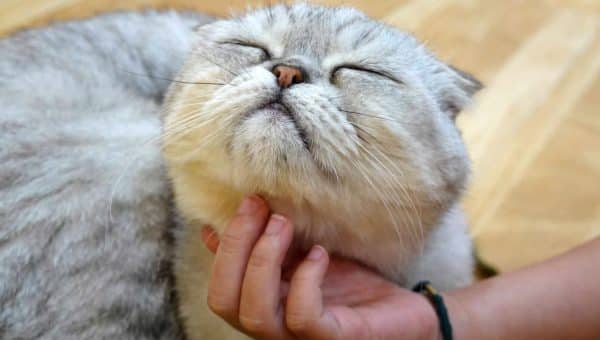- Not a substitute for professional veterinary help.
There can be several reasons behind your cat’s shaking from minor reasons with simple solutions to more complex issues that require a veterinarian.
With the help of Dr. Rebecca Greenstein, Veterinary Medical Advisor for Rover and Chief Veterinarian at Kleinburg Veterinary Hospital, we break down some common reasons why your cat might be shaking, what to look for, and what to do about it.
Why is My Cat Shaking: 8 Reasons, Signs and Treatment
Here are 8 common reasons that may help you answer “Why is my cat shaking?” You know your cat best, so if shaking is sudden or unusual, be sure to consult a veterinarian if you feel concerned or unsure.
Without further ado, here are are some likely possibilities behind your cat’s shaking:
1. Anxiety or Stress
Your cat may experience shaking when in a situation that causes them stress or anxiety, such as a new person in the home or loud noises such as fireworks.
Symptoms:
If your cat’s shaking resembles trembling, or is accompanied by things such as destructive behaviors, hiding or needing to escape, or going potty in inappropriate places—these can all be signs that your cat is struggling with anxiety. It’s important to identify what the trigger or source of anxiety is for your cat.
Treatment:
Depending on your cat, their anxiety response, and what’s triggering them, you can first start by closely observing your cat to pinpoint the source of anxiety. A first course of action can be using patience and positive reinforcement to help them overcome their anxiety. But, in some cases, a cat’s anxiety may be so severe they require the intervention of medical help. If your cat’s anxiety is extreme and not responding to positive reinforcement at home, contact your vet who may prescribe medication.
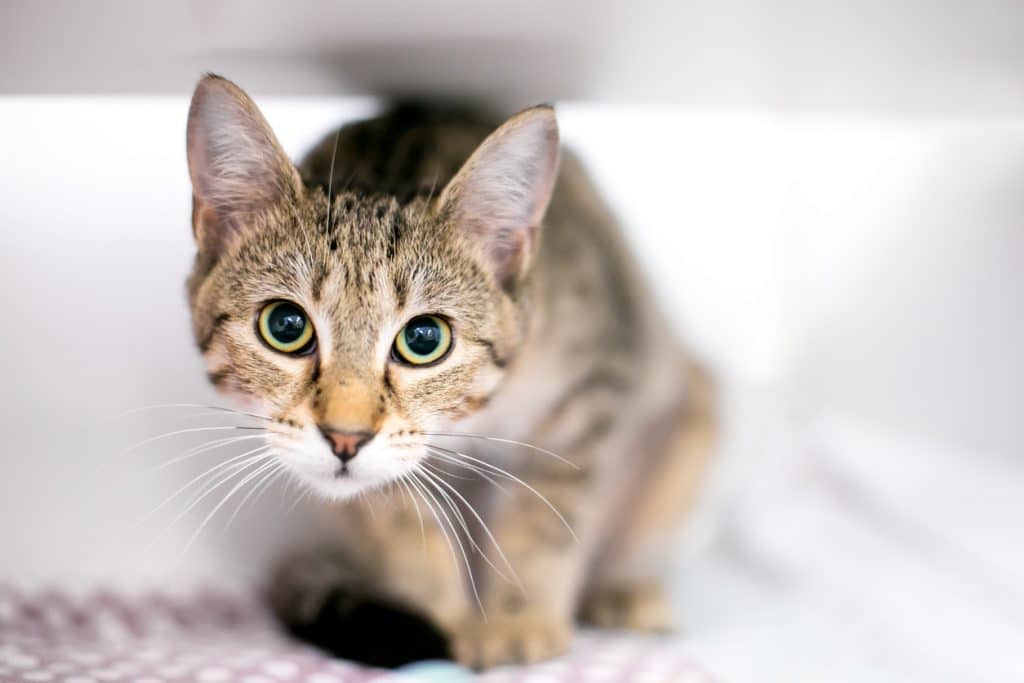
iStock/Mary Swift
2. Temperature
Your cat’s body temperature may be behind their shaking. Your cat could be experiencing hyperthermia (generally above 102.5 degrees) or hypothermia (generally under 100.5 degrees). The easiest way to tell if body temperature is behind your cat’s shaking is a pet thermometer.
Symptoms:
In addition to shaking from fever, other symptoms of hyperthermia may include panting, drooling, lethargy, and even in some cases vomiting, diarrhea, confusion, redness in mouth or gums. With hypothermia, shaking may also be accompanied by cold or clamminess in the extremities, as well as a slowing of the heartbeat and breathing that can lead to a coma.
Treatment:
Whether your cat’s temperature is too high or too low, it is an emergency that requires immediate vet intervention. While home remedies to help raise or lower your cat’s body temperature (i.e. wrap in blankets, or give cool water) until you reach a vet may be advisable, these conditions absolutely should not be resolved without a veterinarian and hypothermia can be lethal and hyperthermia or fever may be a symptom of heat stroke or an underlying infection.
3. Low Blood Sugar (aka Hypoglycemia)
Low blood sugar is most commonly observed in young kittens or cats that are diabetic. Cats may experience shaking once starting insulin. It can also be related to tumors of the pancreas and body-wide infections.
Symptoms:
Shaking due to low blood sugar, especially when it reaches critical levels, will resemble convulsions and seizures. This is an emergency situation.
Treatment:
With low blood sugar shaking, get to a veterinarian immediately.
4. Pain or Injury
Cat’s may shake as a result of pain or injury they are experiencing. Look for clues as to the source of the pain.
Symptoms:
Shaking due to pain or injury is broad. Check for external factors, such as wounds and swelling. If no exterior reason is evident, observe if your cat is hunching or not eating. These may further point to a pain source that isn’t obviously evident.
Treatment:
Treatment varies widely based on the cause of the problem. A broken leg will require a much different approach than a source of internal discomfort. Whether obvious or not, a trip to the vet is recommended to either treat an apparent injury or perform lab work to determine discomfort whose source is unclear.
5. Illnesses
Shaking can be present in several illnesses, but if shaking is due to illness, it will likely be in combination with other tell-tale signs.
Symptoms:
Along with shaking, is your cat experiencing, loss of appetite, lethargy, vomiting, diarrhea, or behavioral changes? These could be signs of overall illness
Treatment:
Treatment is dependent on the underlying cause. A trip to the vet is crucial to determine the source which could range from an infection to gallbladder disease and many more possibilities. Your vet will need to examine your cat and likely do blood and lab work.
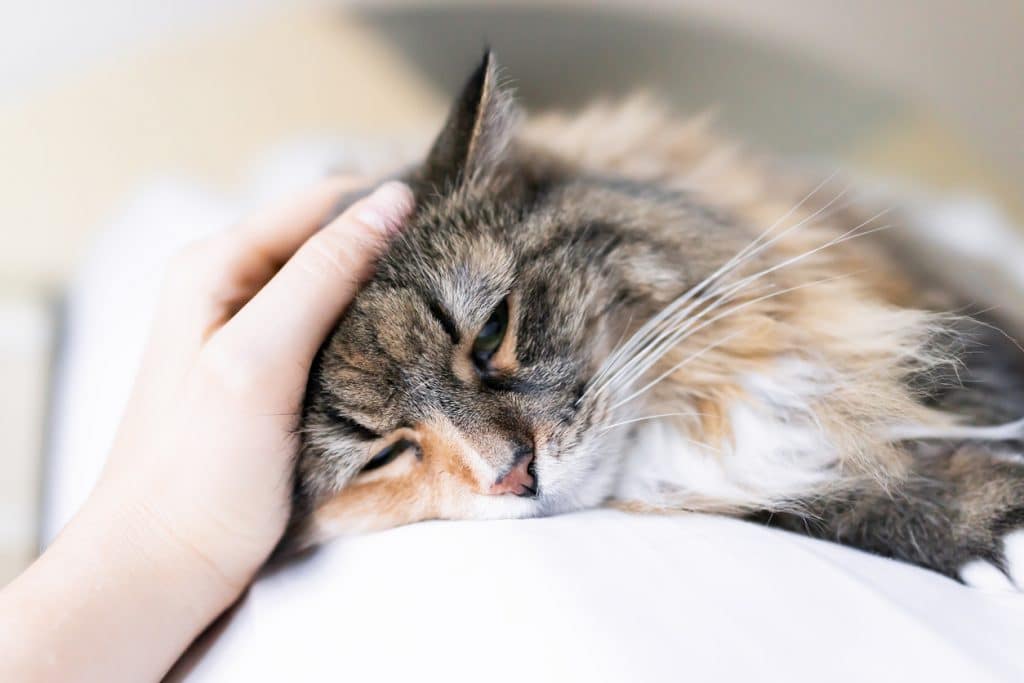
iStock/krblokhin
6. Allergies
Though not as frequent, a little shaking may be related to allergies.
Symptoms:
Head shaking may be related to an allergy or ear infection, or more serious (see next entry). Look for other allergy symptoms like itchiness, sneezing, or irritation.
Treatment:
Your vet can help determine what is causing your cats allergies and prescribe steroids, antihistamines, and other medications to help bring your cat relief.
7. Neurological Issue
Though head shaking may be related to allergies, this type of shaking could be related to a more serious issue: neurological disorder.
Symptoms:
Head shaking from very young may indicate parts of the brain are underdeveloped. Other neurological conditions may include of seizures, drooling, staring off, and behavioral changes—in addition to head shaking.
Treatment:
A neurological disorder is a serious issue, one that requires the immediate consultation of your veterinarian.
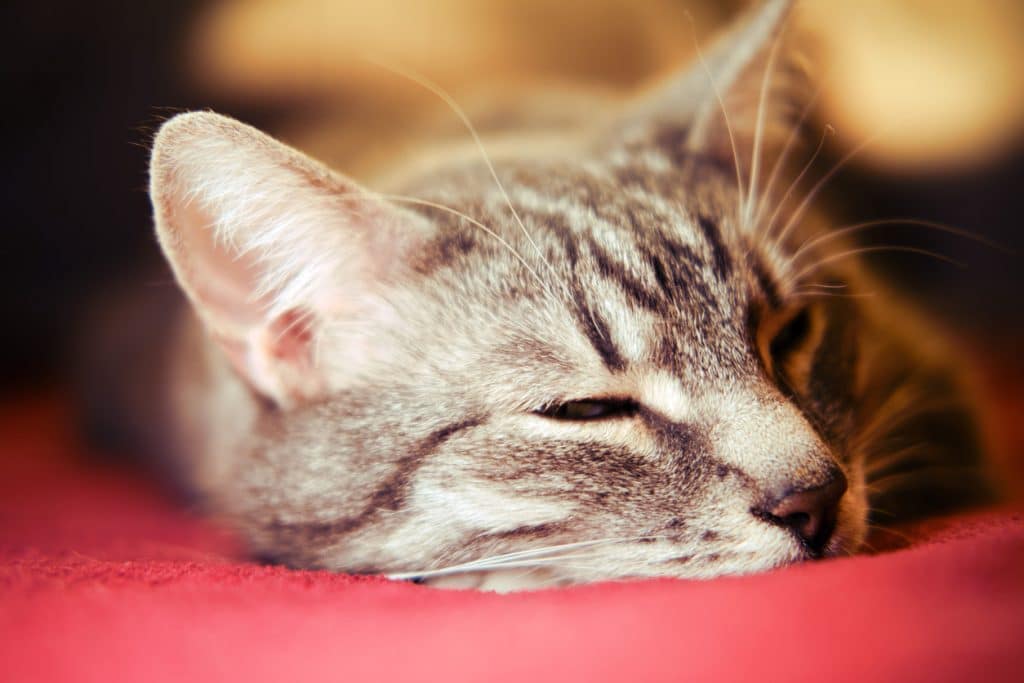
iStock/Andrey Zhuravlev
8. Deep Sleep
Is your cat shaking or twitching during their sleep? It’s not uncommon for cats to make movements during restorative REM sleep. If you’re concerned, gently wake them and the movements should stop, but what if the movements continue? See below.
Symptoms:
In the case of involuntary movement that continues into your cat’s waking state, there are a number of possibilities. Pay attention to their other symptoms in addition to shaking. It could be the result of a neurological disorder (see above), trauma (see pain and injury), ingesting a toxin or muscular disorders (see illness).
Treatment:
The right course of action depends on the cause if cat shaking is present in sleep and awake mode. Your vet can perform tests to help uncover the cause and course of treatment.
Why is My Cat Shaking? Takeaway
Cats can shake for so many reasons, and while some reasons are perfectly healthy, i.e. while dreaming in their sleep, others can be quite serious and require vet attention, such as a neurological disorder. Since the range of causes can be so wide it’s important to pay attention to your cat’s overall health.
“Their litter box says a lot about them,” says Dr. Greenstein, who notes that a cat’s bathroom habits and output provide a lot of information about their general health. Dr. Greenstein also advises to look for dramatic changes in your cat’s behavior, activity level, and state of their coat. These can all point to health issues.
As for a cat’s mental health, keep an eye on any potential triggers that may be causing your cat’s anxiety. Did you recently move? Are loud noises upsetting? Closely observing your cat’s behavior will help determine what’s upsetting them in their environment.
Dr. Greenstein notes that in the age of automatic feeders it can be hard to keep tabs on your cat’s eating habits, but it’s also necessary to pay attention to your cat’s eating, not only to avoid over-feeding, but also to track appetite loss, which may indicate a health problem.
Dr. Greenstein advises annual checkups with wellness blood and lab work to help keep your cat healthy and screen for any underlying, potential issues.
